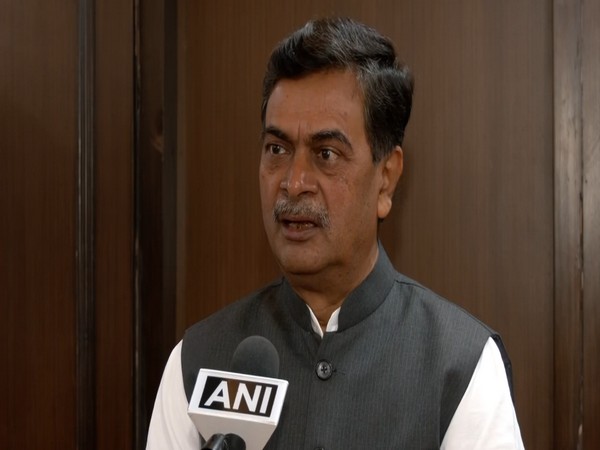Group for development of electricity market in India submits report to Minister RK Singh
The report proposed comprehensive solutions to address key issues, including the dominance of inflexible long-term contracts, harnessing the inherent diversity of a large and synchronous grid.

- Country:
- India
A group, which the power minister had constituted for "Development of Electricity Market in India" under the chairmanship of Alok Kumar, Secretary, Ministry of Power, has submitted a report to Union Power Minister RK Singh. The report proposed comprehensive solutions to address key issues, including the dominance of inflexible long-term contracts, harnessing the inherent diversity of a large and synchronous grid.
According to the statement from the power ministry, other key issues include the need for resource Adequacy planning in the centre and states, reduction in system inefficiencies through lesser reliance on self-scheduling, increasing share of renewables in the overall energy mix, encouraging market participation for renewables, and firmness in the procurement of ancillary services through well-developed ancillary services market. The solutions are aimed at creating an efficient, optimal, and reliable market framework to enable the energy transition and integration of renewable energy into the grid, the ministry said on Sunday.
The Group has outlined the roadmap and specific recommendations in the redesign of the Indian electricity market of the future. The Group has also recommended a roadmap outlining the interventions for the near, medium-, and long-term.
The interventions include setting up a mechanism to monitor whether adequacy of supply is being maintained by the state utilities, enhancing the efficacy of the day-ahead market, introducing a market-based mechanism for secondary reserves, and implementing five-minutes based metering, scheduling, dispatch, and settlement, according to the statement. The proposed changes also include demand response and aggregation, which could reduce reserve requirements and lower electricity costs. There will be strengthening of market monitoring and surveillance activities to keep track of participation and prevent price volatility.
The ministry also added a regional-level balancing framework for deviation management will be implemented which would result in a reduction in deviation penalties for the states at the (Inter State Transmission System) ISTS level and consequently lower the reserve requirements. Speaking on the occasion, Union Minister of Power and New and Renewable Energy R K Singh, while appreciating the work done by the Group, said the proposed reforms are crucial to meeting India's renewable energy targets, and will also create a conducive environment for investment in renewable energy.
"The changes will enable better grid integration of renewable energy and pave the way for a cleaner, greener future," Singh said, adding "India's energy transition towards renewable energy has further highlighted the need for enabling operational and electricity market developments to operate under a new energy order." The minister also said that we need to find out our own solutions instead of depending on the practices being followed in other countries.
"India has been in the forefront of taking timely interventions and was able to keep electricity prices in check during the energy crisis in last one year whereas electricity prices shot up many times in electricity markets of many developed countries," Singh said. The minister emphasised the need of ensuring the procurement of most efficient-power generation capacity while designing the capacity contracts and also agreed with the recommendations of having long-term Power Purchase Agreements (PPAs) of 12-15 years duration now onwards.
The Union Minister also directed to immediately undertake the development of new renewable energy (RE) capacity based on Contract for Difference (CfD) methodology in order to ensure competition and transparency. He directed that the power exchange clearing engine may be validated by Central Electricity Regulatory Commission (CERC). (ANI)
(This story has not been edited by Devdiscourse staff and is auto-generated from a syndicated feed.)










